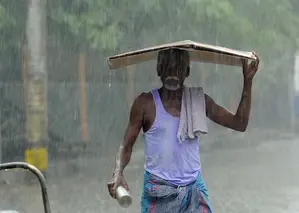Why Has Rajasthan's Barmer Declared a Seven-Hour Blackout Amid Rising Indo-Pak Tensions?

Synopsis
Key Takeaways
- Mandatory blackout from 9 p.m. to 4 a.m.
- Public cooperation with authorities is crucial.
- Emergency preparedness guidelines have been issued.
- Residents should stay indoors and keep lights off.
- Disaster management committees are being formed in villages.
Jaipur, May 8 (NationPress) Amid escalating tensions along the India-Pakistan border, the Barmer district administration in Rajasthan has enacted a mandatory blackout from 9 p.m. to 4 a.m. to mitigate potential risks of air raids.
The District Collector, Tina Dabi, has issued firm directives for residents to turn off all household and outdoor lighting, including streetlights, and to take down illuminated banners and hoardings.
Additionally, residents are encouraged to ensure that inverters are turned off during the blackout hours to maintain total darkness.
The public is urged to fully cooperate with the Border Security Force (BSF) and local police, especially in border villages, and to remain calm while adhering to official guidance.
In a move to ensure administrative preparedness, holidays for all officers and employees in the district have been cancelled.
The administration continues to appeal for public calm and peace during this critical time.
Gaurav Agarwal, the Jodhpur District Collector, underlined the significance of adhering to blackout regulations, warning that non-compliance could jeopardize thousands of lives.
He explained that the first siren would indicate an incoming threat, while the second would signify that the danger has passed.
Agarwal implored residents to remain indoors, keep all lights—inside, outside, and on vehicles—turned off, and to regard the blackout as a vital safety measure.
Collector Tina Dabi reaffirmed that the district has implemented a two-phase siren system to manage the blackout, instructing residents to maintain complete darkness until the second siren or official clearance is announced.
Guidelines for emergency preparedness have been issued, advising residents to have essential items, identity and ration cards, and important documents readily packed.
People are encouraged to identify the nearest community shelters, such as schools or panchayat buildings, and to cover any non-switchable light sources with cloth to avoid visibility from outside.
In the event of an air raid or siren, residents should seek shelter in the innermost and lowest parts of their homes, away from windows. They are advised to take cover under sturdy furniture or remain close to interior walls, close all doors and windows, and turn off gas cylinders.
Household items like clay pots or water tanks can also be used to create makeshift protection. Special instructions for border villages emphasize the importance of cooperating with the BSF and police for effective evacuation.
To bolster village-level preparedness, each village has been tasked with establishing a disaster management committee, including the Gram Sevak, Sarpanch, and school head.
These committees will identify safe shelters and mobilize essential resources, with schools potentially closing if necessary.
Residents are urged to report any unidentified individuals, drones, or suspicious objects immediately to the nearest police station or army post.
The administration has reiterated the importance of remaining vigilant, steering clear of rumors, and relying solely on verified information sources.
An alert has been issued in border areas following recent attacks on three military bases in Rajasthan. Local district administrations in affected regions have released comprehensive guidelines to ensure public safety.
Officials have urged residents of border villages to stay calm and alert. In case of heightened tensions necessitating evacuation, they must fully cooperate with the BSF and local police to facilitate a safe and orderly process.









